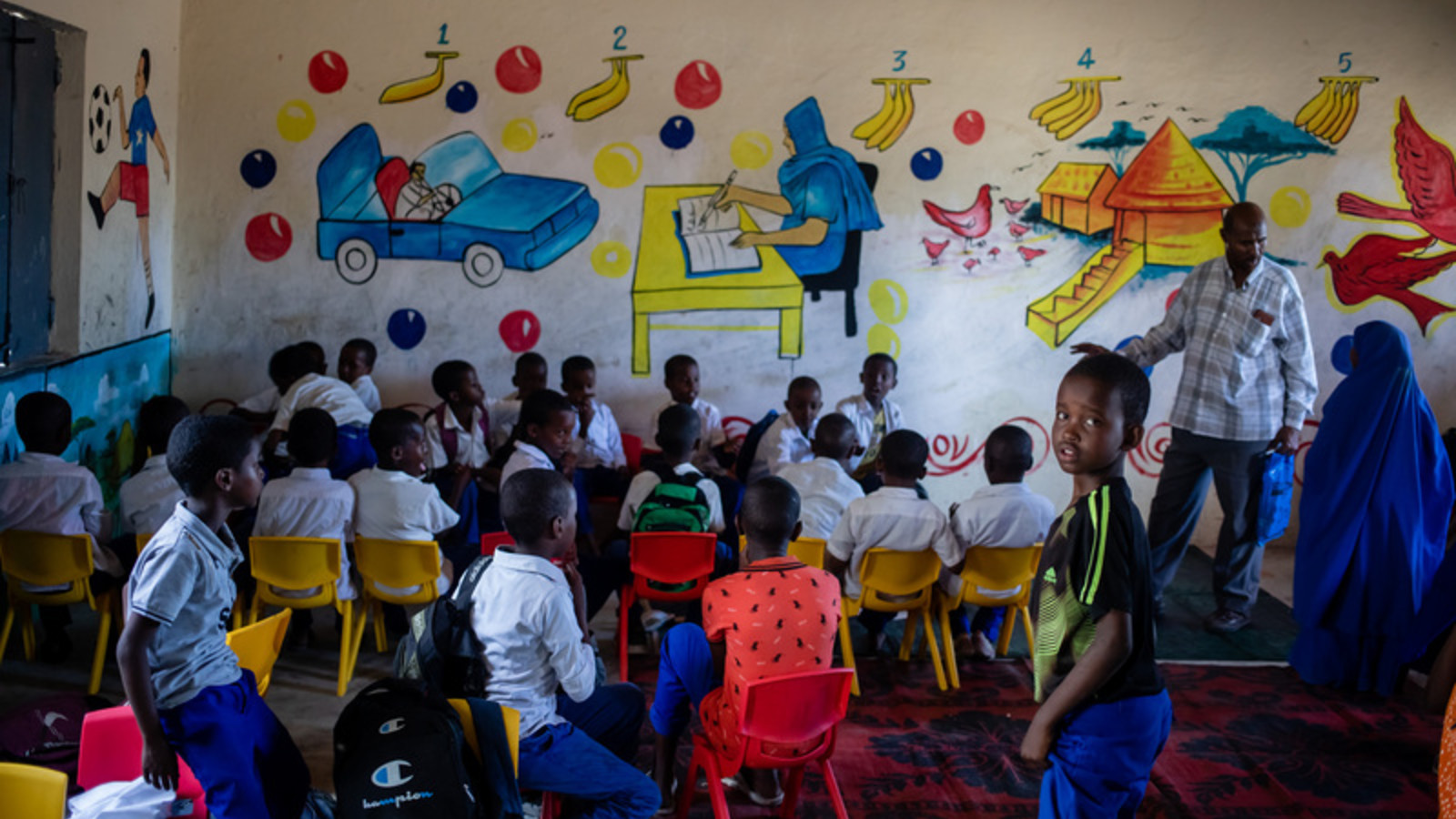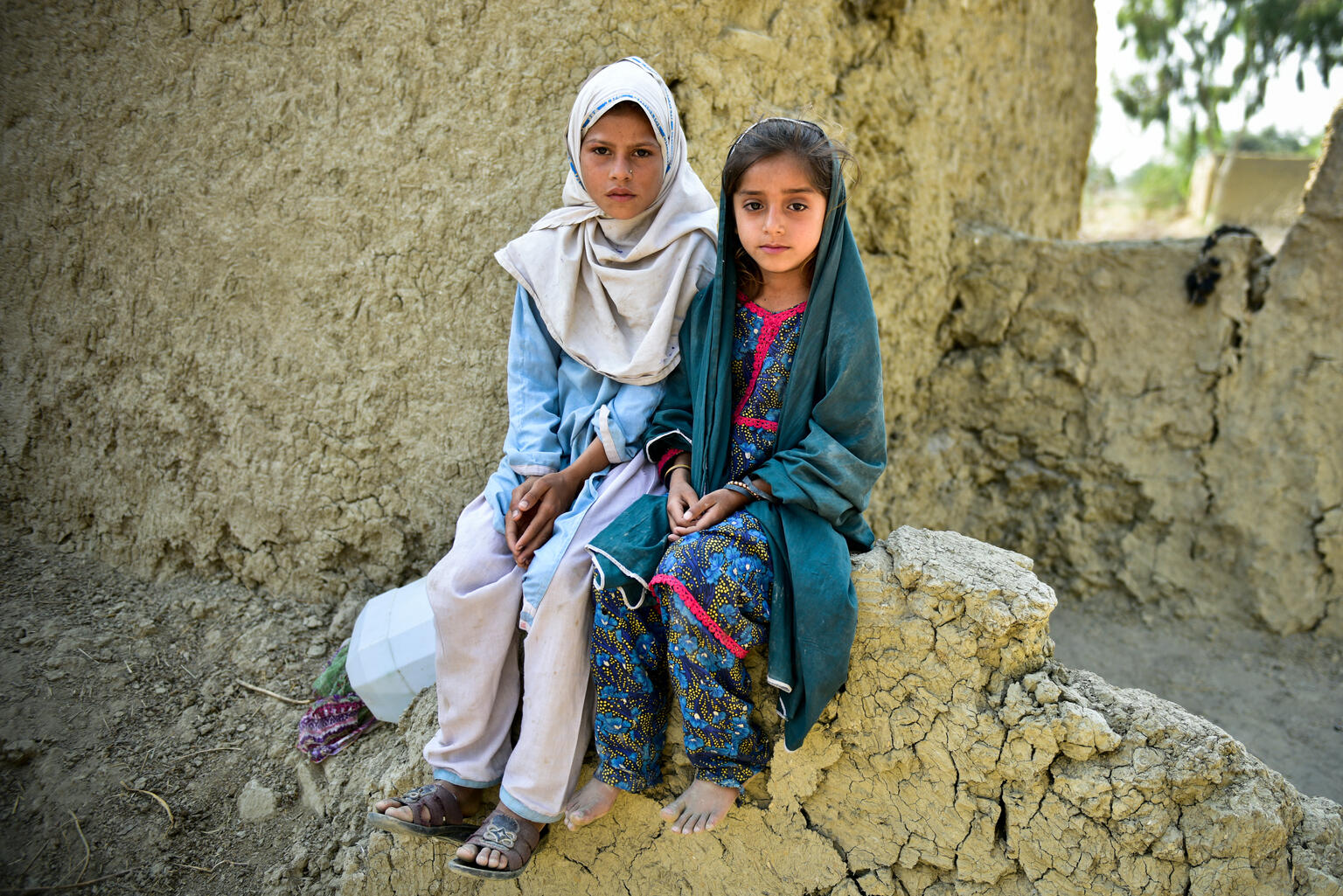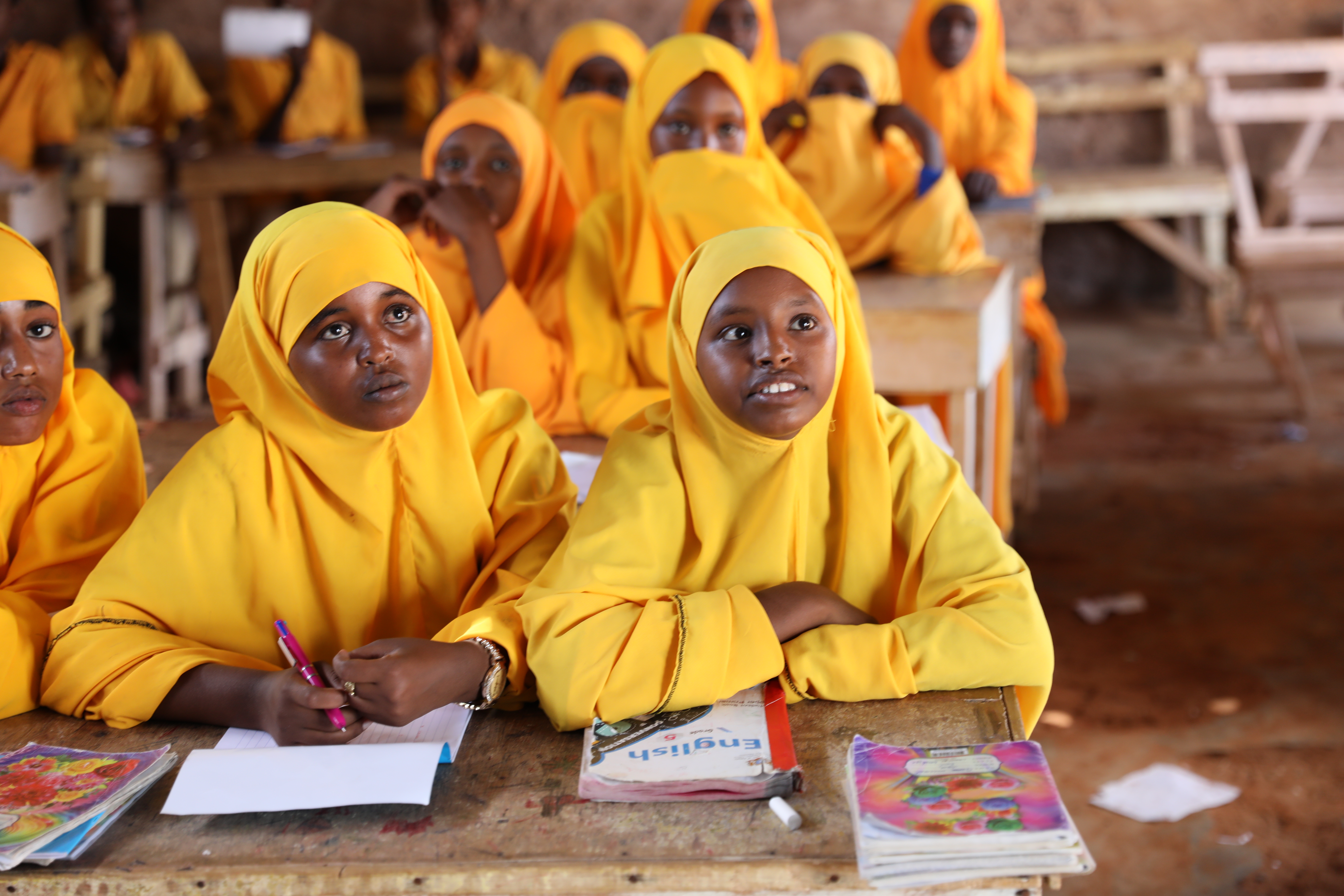ECW in Somalia
In Somalia, ongoing economic and political instability coupled with violence have weakened the educational infrastructure and left many students out of the classroom. Recurring climate-induced disasters, such as drought, exacerbate these issues. Since 2017, Education Cannot Wait (ECW) has supported partners to address the low enrolment and retention rates in schools, particularly for girls. Ongoing programmes strengthen access to safe, inclusive and protective learning environments in the Federal Government of Somalia and Member States, in Puntland State, and in Somaliland. Investments focus on improving learning outcomes and enhancing gender equality. Interventions include infrastructure enhancements; teacher professional development; awareness campaigns highlighting the importance of education; and nutritious school meals.
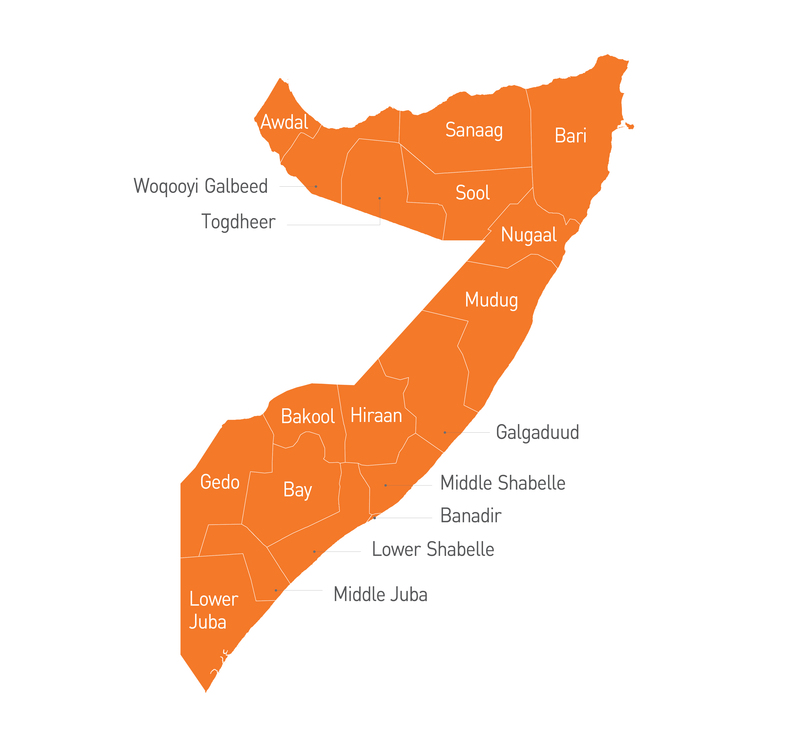
Investments
Financial Information
National Counterparts
Ministry of Education and Higher Education, Ministry of Women and Family Affairs, Ministry of Education and Science of Somaliland
Results
Additional Results
- Number of children and adolescents benefiting from water supply at school: 59,173
- Number of children and adolescents supported with school feeding programmes: 52,953
- Number of adolescents girls receiving menstrual care kits, female hygiene kits or similar assistance: 10,409
- Number of girls and boys taking part in a ECW-supported children's club: 9,004
COVID-19 Results
Programme Info
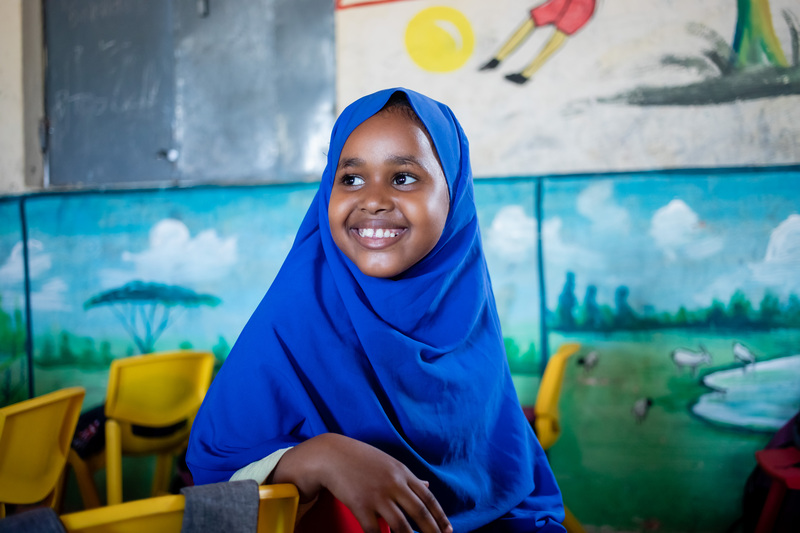
Under a third of boys, and even less girls, that are of school age are enrolled. Access at the secondary level is even more limited, with only a very small percentage of secondary school-age children attending. Children uprooted by crises are particularly affected. Nearly two-thirds of displaced children have had their education interrupted and risk never returning to school.
Climate-induced crises affect communities across Somalia, particularly in the Puntland State. Cyclones, flooding and drought regularly displace households and damage critical infrastructure, such as schools. Adding to this, conflict-related displacement hinders crisis responses, delaying aid and essential services.
COVID-19 school shutdowns further hindered access to education, which led to many students not returning or falling off course.
ECW’s multi-year support addresses the impact of crises on education, through improved infrastructure and new and rehabilitated schools; training sessions for educators and communities; awareness campaigns; and efforts both locally and nationally to improve equitable access to education for girls.
The three Multi-Year Resilience Programmes (MYRPs) in Somalia are holistic and have a ‘whole-of-child’ approach to address health, nutrition and gender inequalities issues. Interventions include school feeding programmes; new gender policies and training; and gender-segregated toilet, sanitation and hygiene (WASH) facilities.
Programme Components
- Increasing awareness within communities. To increase enrolment and retain students, the programmes run awareness campaigns, targeting parents and communities, highlighting the importance of education.
- Strengthening the educational infrastructure. Supports the building and rehabilitation of classrooms and learning labs for young children to play and learn. The aim is to ensure that primary schools are accessible for children with disabilities, including the construction of WASH facilities with gender-segregated latrine blocks. Grantees distribute desks and additional classroom resources to schools, and students receive supplies such as solar lamps, supplementary reading books and textbooks to aid continued learning at home. Teachers are supported with professional development opportunities through a two-year diploma programme.
- Supporting safe and protective learning environments for crisis-affected children. ECW funds community level training sessions for regional education officers, parents and teachers on child-safeguarding and resilience. The programmes connect with children and increase their participation in the system by establishing children’s clubs and distributing learning materials.
- Supporting enhanced gender equality. In collaboration with the Ministry of Education and Higher Education and the Ministry of Women and Family Affairs, the programme supports the new policy on gender in education by guiding gender strategy proposals and offering recommendations. In Somaliland, the Ministry of Education and Science implemented and maintains a safe schools’ framework by providing child safeguarding and protective service manuals to educators and local education committees. ECW funds gender training for teachers and covers the exam fees for female eighth graders. This results in increased attendance, improved exam scores and safer learning environments.
For more information on ECW's work in Somalia, please contact Country Lead Dianah Nelsen (dnelson@unicef.org) and Programme Manager Eddie Dutton (rdutton@unicef.org).

